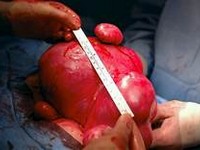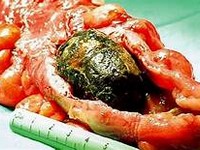
INTERSTITIAL CYSTITIS
FOODS THAT HARM
FOODS THAT HEAL
FOODS TO LIMIT
Processed foods containing preservatives and other chemicalsWHO’S AFFECTED
Interstitial cystitis (IC) is a chronic, severely debilitating disease that affects the bladder
Its symptoms include urgent and frequent urination, pelvic pain, and painful intercourse; its causes are unknown
The problems can come and go, flare-ups are common, and the condition usually lasts a lifetime
Typically, IC is diagnosed only after ruling out a variety of other conditions, including sexually transmitted diseases, bladder cancer, and bladder infections
And because doctors often misdiagnose IC as an infection, years can elapse before the condition is accurately diagnosed
Nutrition Connection
Here are some food strategies to help alleviate the symptoms of IC: Try an elimination dietMany foods are reported to worsen symptoms, but people react differently to different foods
Rather than eliminating suspected food triggers from your diet all at once, try eliminating one at a time for several days, and note whether or not your symptoms got better
Some common triggers include coffee, cranberry juice, and hot peppers
Avoid trigger foods
Once you’ve identified your food triggers, be especially careful not to eat them when you’re starting a new drug therapy
Consider going organic
Since many people with IC are sensitive to food additives, including preservatives, artificial sweeteners and flavorings, and other chemicals, try to buy fresh organic food whenever you can
Beyond the Diet
Find a drug regime that worksMedications used to treat IC include ibuprofen, tricyclic antidepressants, diphenhydramine, and pentosan polysulfate, the only drug specifically approved by the FDA to treat IC
Get some PT
Physical therapy can be extremely helpful for some IC symptoms, particularly if you also experience pelvic pain
Seek out a therapist who is experienced in treating people with IC
Importance of well balance diet




